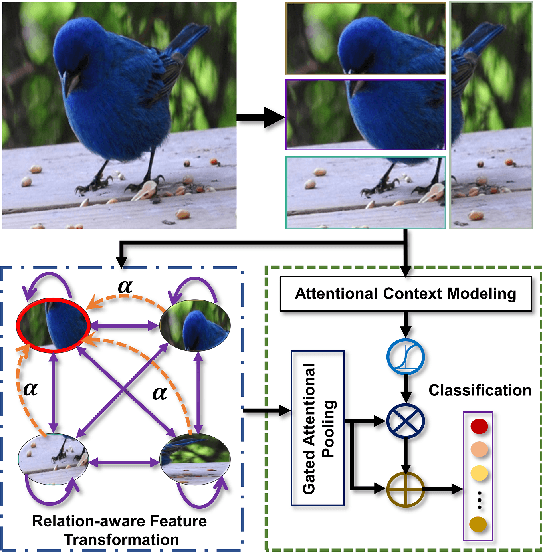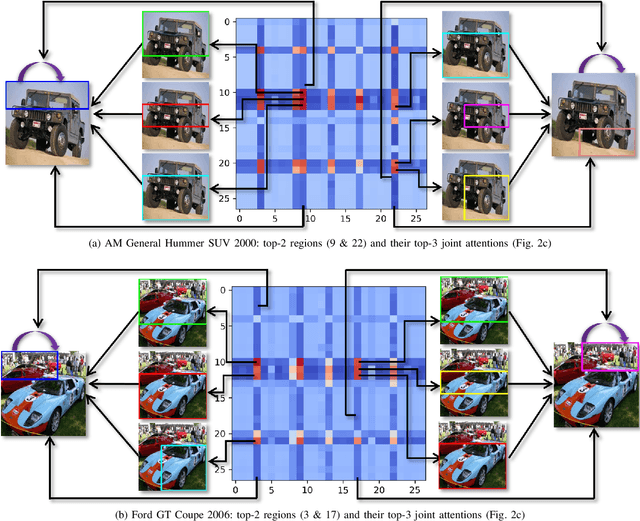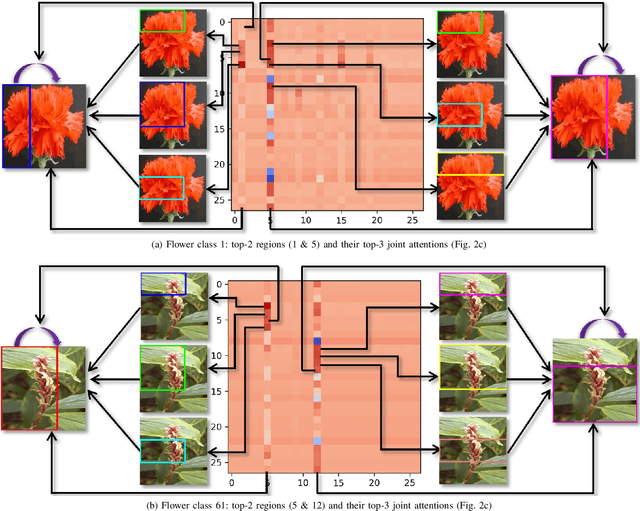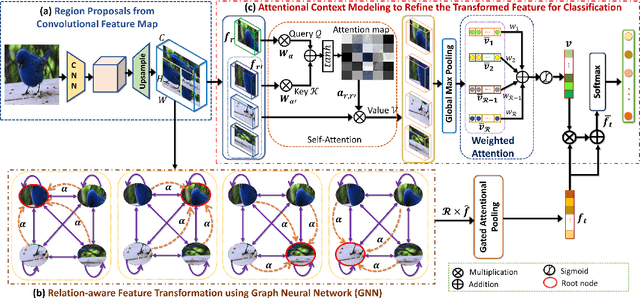SR-GNN: Spatial Relation-aware Graph Neural Network for Fine-Grained Image Categorization
Paper and Code
Sep 05, 2022



Over the past few years, a significant progress has been made in deep convolutional neural networks (CNNs)-based image recognition. This is mainly due to the strong ability of such networks in mining discriminative object pose and parts information from texture and shape. This is often inappropriate for fine-grained visual classification (FGVC) since it exhibits high intra-class and low inter-class variances due to occlusions, deformation, illuminations, etc. Thus, an expressive feature representation describing global structural information is a key to characterize an object/ scene. To this end, we propose a method that effectively captures subtle changes by aggregating context-aware features from most relevant image-regions and their importance in discriminating fine-grained categories avoiding the bounding-box and/or distinguishable part annotations. Our approach is inspired by the recent advancement in self-attention and graph neural networks (GNNs) approaches to include a simple yet effective relation-aware feature transformation and its refinement using a context-aware attention mechanism to boost the discriminability of the transformed feature in an end-to-end learning process. Our model is evaluated on eight benchmark datasets consisting of fine-grained objects and human-object interactions. It outperforms the state-of-the-art approaches by a significant margin in recognition accuracy.
 Add to Chrome
Add to Chrome Add to Firefox
Add to Firefox Add to Edge
Add to Edge